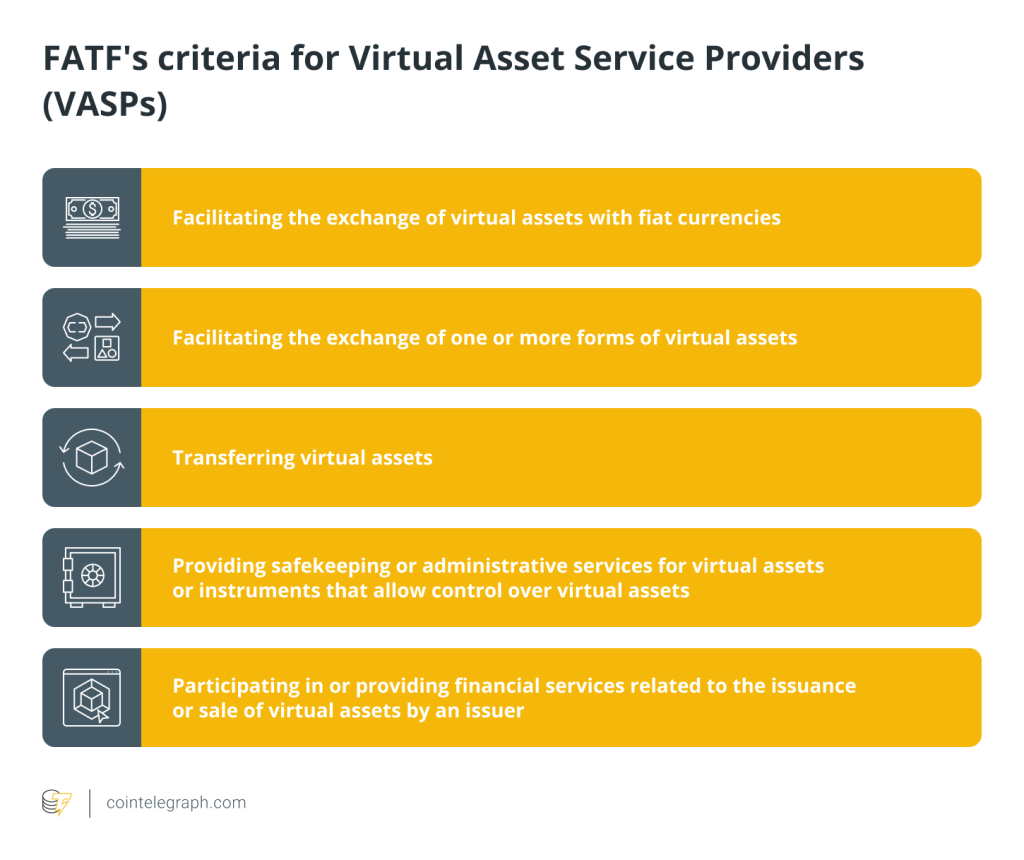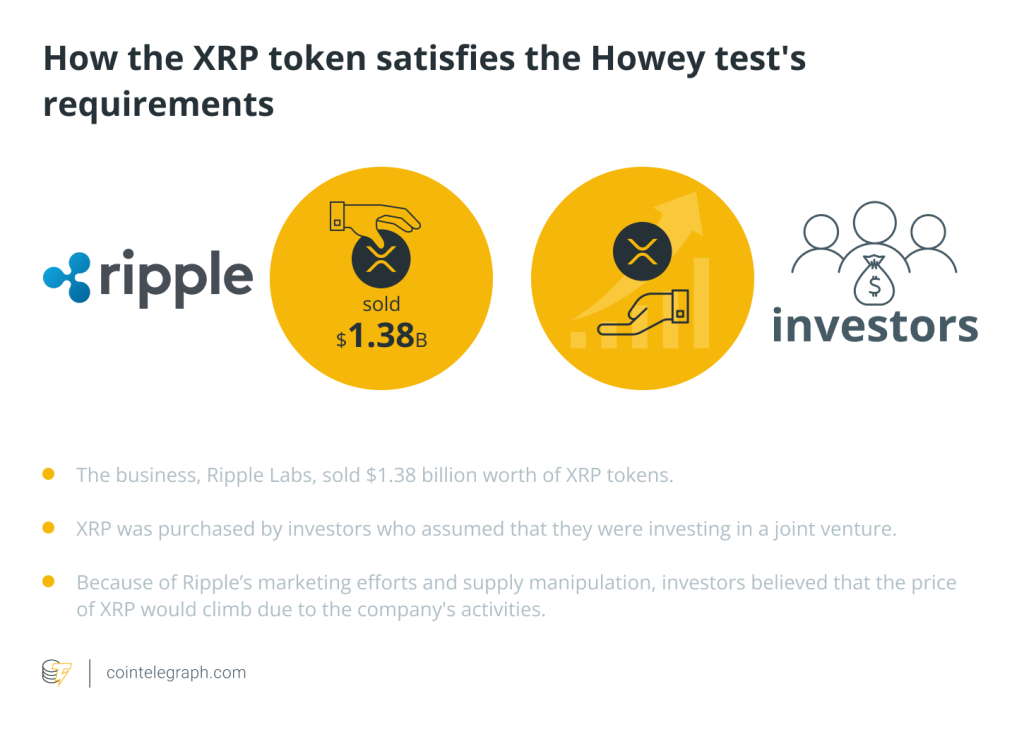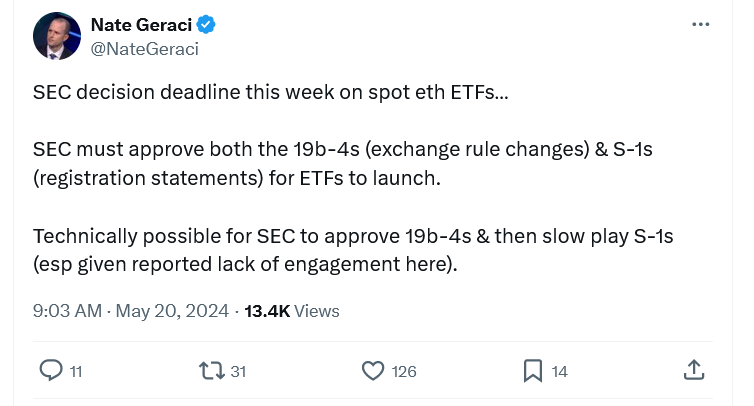Hester Pierce against ‘gag rule,’ lawmakers challenging regulators: Law Decoded

Hester Peirce believes that if the SEC is “confident in its investigative work” and analysis, it doesn’t need to “demand silence on the part of settling defendants.”

United States Securities and Exchange Commission (SEC) Commissioner Hester Peirce disagreed with her agency’s denial of a petition to amend its 1972 “gag rule,” which forbids defendants from denying or refusing to admit to the SEC’s allegations following a settlement. “The policy of denying defendants the right to criticize publicly a settlement after it is signed is unnecessary, undermines regulatory integrity, and raises First Amendment concerns,” Peirce wrote, adding that if the SEC is “confident in its investigative work” and analysis, it doesn’t need to “demand silence on the part of settling defendants.”
U.S. Congress members seek to repeal the SEC’s Staff Accounting Bulletin 121 (SAB 121). This bulletin limits banks wishing to hold their client’s cryptocurrency assets, requiring them to keep their investor’s assets on the balance sheet. Representatives Mike Flood, Wiley Nickel and Senator Cynthia Lummis introduced a resolution under the Congressional Review Act to formally disapprove SAB 121 and cease its legal force. U.S. lawmakers have argued that it jeopardizes the willingness of regulated banks to act as crypto custodians and treats crypto holdings differently than other assets.
Leaders of the U.S. House Financial Services Committee and Subcommittee on Digital Assets, Financial Technology and Inclusion called for a longer comment period on a proposed rule from the Consumer Financial Protection Bureau (CFPB), claiming its impact on the digital asset space would be “unclear” if implemented. Representatives Patrick McHenry, Mike Flood and French Hill question how a November 2023 proposal “would apply to specific entities within the digital asset ecosystem.” The CFPB rule suggested extending its supervisory authority over depository institutions, including digital assets in its “funds” definition and allowing it to target wallets.
China to introduce new AML regulations
China is set to amend its Anti-Money Laundering (AML) regulations to include cryptocurrency-related transactions amid calls for greater scrutiny of the country’s nascent crypto industry by policymakers. The first revised draft of the country’s AML regulations was proposed in 2021, with the revised draft included in the legislative work plan of the State Council in 2023 and will be signed into law by 2025.
Wang Xin, a professor at Peking University Law School who participated in the discussion, stressed the urgent need for resolving issues around crypto money laundering at the legal level. Xin added that the use of cryptocurrency and digital assets for money laundering has gradually become a mainstream trend, and current Chinese laws lack a clear definition of digital assets. The professor noted that although the revised draft includes the prevention of digital asset money laundering, there is a lack of operational guidance on the subsequent seizure, freezing, deduction and confiscation of the assets from money laundering crimes, resulting in a “disconnect.”






… [Trackback]
[…] Info to that Topic: x.superex.com/news/ai/4132/ […]
… [Trackback]
[…] Find More Information here on that Topic: x.superex.com/news/ai/4132/ […]
… [Trackback]
[…] Information on that Topic: x.superex.com/news/ai/4132/ […]
… [Trackback]
[…] Find More here to that Topic: x.superex.com/news/ai/4132/ […]
… [Trackback]
[…] There you will find 81564 more Information on that Topic: x.superex.com/news/ai/4132/ […]
… [Trackback]
[…] Info on that Topic: x.superex.com/news/ai/4132/ […]
… [Trackback]
[…] Find More Information here to that Topic: x.superex.com/news/ai/4132/ […]
… [Trackback]
[…] Find More on to that Topic: x.superex.com/news/ai/4132/ […]
… [Trackback]
[…] Read More on that Topic: x.superex.com/news/ai/4132/ […]
… [Trackback]
[…] Find More Information here on that Topic: x.superex.com/news/ai/4132/ […]
… [Trackback]
[…] There you will find 14717 more Information to that Topic: x.superex.com/news/ai/4132/ […]
… [Trackback]
[…] Read More here on that Topic: x.superex.com/news/ai/4132/ […]
… [Trackback]
[…] There you will find 59132 additional Information to that Topic: x.superex.com/news/ai/4132/ […]
… [Trackback]
[…] Read More on that Topic: x.superex.com/news/ai/4132/ […]
… [Trackback]
[…] Here you will find 90658 additional Information to that Topic: x.superex.com/news/ai/4132/ […]
… [Trackback]
[…] Read More Information here on that Topic: x.superex.com/news/ai/4132/ […]
… [Trackback]
[…] There you can find 37561 additional Information on that Topic: x.superex.com/news/ai/4132/ […]
… [Trackback]
[…] Find More Information here to that Topic: x.superex.com/news/ai/4132/ […]
… [Trackback]
[…] Find More on on that Topic: x.superex.com/news/ai/4132/ […]
… [Trackback]
[…] There you will find 48329 more Information on that Topic: x.superex.com/news/ai/4132/ […]
… [Trackback]
[…] Read More Info here to that Topic: x.superex.com/news/ai/4132/ […]
… [Trackback]
[…] Find More to that Topic: x.superex.com/news/ai/4132/ […]